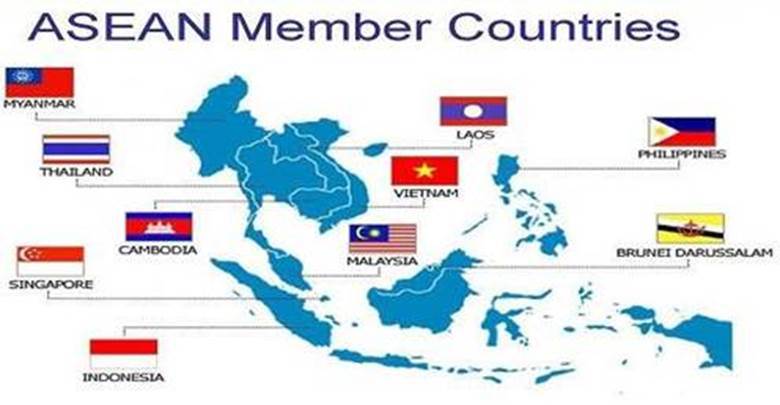Description

Copyright infringement not intended
Context: India and other countries should “respect” and follow the ASEAN’s policy on Myanmar rather than taking a “different” path, Indonesian Foreign Minister Retno Marsudi says.
Details:
- In comments about India’s decision to engage the Myanmar military government that came to power in February 2021 after deposing the elected National Unity Government and jailing thousands of leaders, including Aung San Suu Kyi, Ms. Marsudi said that it could make efforts of the 10-member Association of South East Asian Nations towards democracy “less effective”.
- Instead, she urged India and other countries to follow the ASEAN “five point consensus”.
- The plan calls for an immediate end to violence in the country; dialogue among all parties; the appointment of a special envoy; humanitarian assistance by ASEAN; and the special envoy’s visit to Myanmar to meet with all parties.
- Earlier in the year, ASEAN members and the U.S. had also conveyed their concerns to New Delhi and Colombo about their invitation to the Myanmar Foreign Minister for the Bay of Bengal Initiative for Multi-Sectoral Technical and Economic Cooperation (BIMSTEC) virtual summit in March.
- Government officials have maintained that India’s ties with Myanmar are important given that they share a porous border with incursions by militants, and need to engage the military leadership as regional rivals like China do.
- India and Indonesia are expected to strengthen their engagement in the next year given that India has now assumed the presidency of the G-20, where Indonesia is a member of the “troika” as the immediate past president. Indonesia has just assumed chairmanship of the ASEAN grouping as well.
.jpg)
India and ASEAN:
- Association of Southeast Asian Nations (ASEAN), a 10-nation grouping, is considered one of the most influential groupings in Southeast Asia.
- It promotes intergovernmental cooperation and facilitates economic, political, security, military, educational, and sociocultural integration among its members and other countries in Asia.
- ASEAN operates under six fundamental principles, two of which are mutual respect for independence, sovereignty, and territorial integrity, and non-interference in member countries’ internal affairs.
- India and several other countries, including the US, China, Japan and Australia, are its dialogue partners.
- The ASEAN-India dialogue relations started with the establishment of a sectoral partnership in 1992.
- This graduated to full dialogue partnership in December 1995 and summit-level partnership in 2002.
- India is hosting the two-day conclave to mark the 30th anniversary of its relations with the 10-nation Association of Southeast Asian Nations (ASEAN).
- The ASEAN comprises Indonesia, Thailand, Vietnam, Laos, Brunei, the Philippines, Singapore, Cambodia, Malaysia and Myanmar.
Why ASEAN matters to India?
- The ten countries of South East Asia connect the two great oceans in both the geographical and civilizational sense.
- Central to India's Pacific vision, ASEAN assumes importance on the backdrop of an increasing Chinese influence in the region.
- While India and China are locked in a bitter standoff along the Line of Actual Control, New Delhi's outreach to ASEAN nations will help strengthen much needed diplomatic ties.
- ASEAN is also India's fourth-largest trade partner with about $86.9 Bn in trade between India and the ten ASEAN nations.
- ASEAN and India share land and maritime borders, and there is a lot of scope for enhancing connectivity through land, air and sea.
- India-Myanmar-Thailand Trilateral Highway is an ongoing effort to enhance road connectivity between Northeast India and Southeast Asia.
- ASEAN-India strategic partnership stands on a strong foundation of shared geographical, historical and civilisational ties.
- India’s Act East Policy, underlining ASEAN centrality, reflects the importance, India attaches to engagement with ASEAN.
- Inclusiveness, openness and ASEAN centrality and unity, lie at the heart of the new Indo-Pacific.
- With the increasing focus on oceans as providers of resources, the reservoirs of biodiversity, the highways of global trade and the frontiers of scientific research, cooperation in the maritime domain has become increasingly important under the overall rubric of ASEAN-India cooperation.
Issues with ASEAN:
- Lack of a custodian and lacks of strong institutions to guarantee the success of the implementation of its collective decisions.
- Facing strategic competition for influence in the Asia-Pacific between the United States and China and have been forced to choose sides.
- Each member faces their own unique social, economic, and political challenges. As a result, each seems to have no choice but focus on addressing their own internal affairs.
- ASEAN members faces internal and external security challenges that are border disputes and conflicts, illegal migration, ethnic crises etc.
.jpg)
Way Forward:
- ASEAN must put in extra efforts to sustain and enhance its existing successes and achievements. The bloc should emerge as a catalyst for peace by promoting rule of law in the region.
- ASEAN must also promote transparency and work to reduce corruption.
- This association needs to enhance closer coordination and regional connectivity. India should also start delivering the pending project. For ex. the India-Myanmar-Thailand (IMT) highways project
- ASEAN need to strike a good balance between commercial gains and environmental protection if ASEAN wishes to achieve inclusive growth and sustainable development.
https://epaper.thehindu.com/Home/ShareArticle?OrgId=GNCAKEIQ9.1&imageview=0






.jpg)








